Flashmobs are the latest craze in Europe this summer
Published:
18 August 2003 y., Monday
Flashmobs are the latest craze in Europe this summer. It’s another scorching day in Berlin, and on the Alexanderplatz in the city’s center, people are sitting on the edge of a fountain, hoping to catch some relief from the heat. A few are standing around in curious expectation. An Internet site had said a flashmob would take place at 5:00 p.m. But at 4:59 there was no trace of anything out of the ordinary.
Then at five on the dot, a circle of some 10 people suddenly convened around the fountain from out of nowhere. They were all young men in their 20s. Each took off his left show and passed it to his neighbor. Within about 15 seconds, the shoes had made a full circle and were back with their owners. The men gave themselves a high-five and dispersed without a trace. All that was left after their departure were amused and slightly confused onlookers, wondering what they just say.
Flashmobs, or spontaneous gatherings of people engaged in somewhat pointless activities, are the most recent U.S. import. In June of this year, the first such event took place in a Macy’s department store in New York. Since then, the concept has spread quickly across the United States, and leapfrogged over to Australia, Singapore and, as of the end of July, made its way to Europe.
In Germany, flashmobs have become very popular among a mostly young, computer-savvy group. More than 150 towns and cities have been the sites for the blitz-like gatherings, and in Berlin, at least two or three of the brief nonsensical events are announced every day on various Web sites, e-mail lists and mobile phone messages.
Šaltinis:
dw-world.de
Copying, publishing, announcing any information from the News.lt portal without written permission of News.lt editorial office is prohibited.
The most popular articles
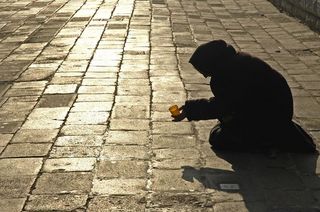 The dark spectre of unemployment is stalking Europe and 2010 is the year it has earmarked in the fight against poverty.
more »
The dark spectre of unemployment is stalking Europe and 2010 is the year it has earmarked in the fight against poverty.
more »
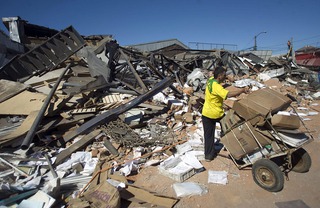 Just about a month after a devastating 8.8-magnitude earthquake destroyed vast swaths of Chile’s south central region, residents in the coastal town of Dichato continue to wait for much needed aid.
more »
Just about a month after a devastating 8.8-magnitude earthquake destroyed vast swaths of Chile’s south central region, residents in the coastal town of Dichato continue to wait for much needed aid.
more »
 The European Parliament will once again mark “Earth Hour” by switching off lights in all its buildings for one hour this Friday and Saturday.
more »
The European Parliament will once again mark “Earth Hour” by switching off lights in all its buildings for one hour this Friday and Saturday.
more »
 Only one in 10 board members of Europe's biggest listed companies is a woman and all central bank governors in the EU are male.
more »
Only one in 10 board members of Europe's biggest listed companies is a woman and all central bank governors in the EU are male.
more »
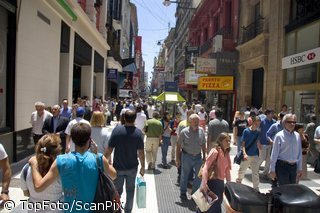 New rules in 10 EU countries would let international couples choose which country’s law applies to their divorces.
more »
New rules in 10 EU countries would let international couples choose which country’s law applies to their divorces.
more »
 The EP's Committee on Culture and Education urges the EU to promote non-formal education, combat youth unemployment and help young people with special needs.
more »
The EP's Committee on Culture and Education urges the EU to promote non-formal education, combat youth unemployment and help young people with special needs.
more »
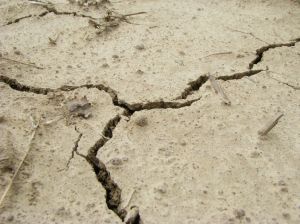 More than 50 million people in southwest China are struggling to cope with what is being called the worst drought in living memory.
more »
More than 50 million people in southwest China are struggling to cope with what is being called the worst drought in living memory.
more »
 Ideas sought on how to improve train, energy and banking services - a major cause of headaches for consumers in Europe.
more »
Ideas sought on how to improve train, energy and banking services - a major cause of headaches for consumers in Europe.
more »
 The EBRD is supporting the rehabilitation of the water and wastewater system in the city of Aktau, in the Mangystau region of Kazakhstan, with a loan in Kazakhstan Tenge (KZT) equivalent to €5.8 million (KZT 1.2 billion) to Aktau TVS&V, the municipal water and district heating company serving the city.
more »
The EBRD is supporting the rehabilitation of the water and wastewater system in the city of Aktau, in the Mangystau region of Kazakhstan, with a loan in Kazakhstan Tenge (KZT) equivalent to €5.8 million (KZT 1.2 billion) to Aktau TVS&V, the municipal water and district heating company serving the city.
more »
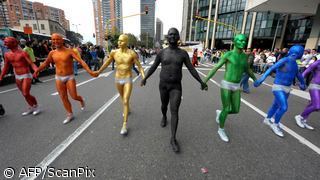 The world’s biggest St. Patrick’s Day parade bathed New York’s Fifth Avenue in a sea of green.
more »
The world’s biggest St. Patrick’s Day parade bathed New York’s Fifth Avenue in a sea of green.
more »